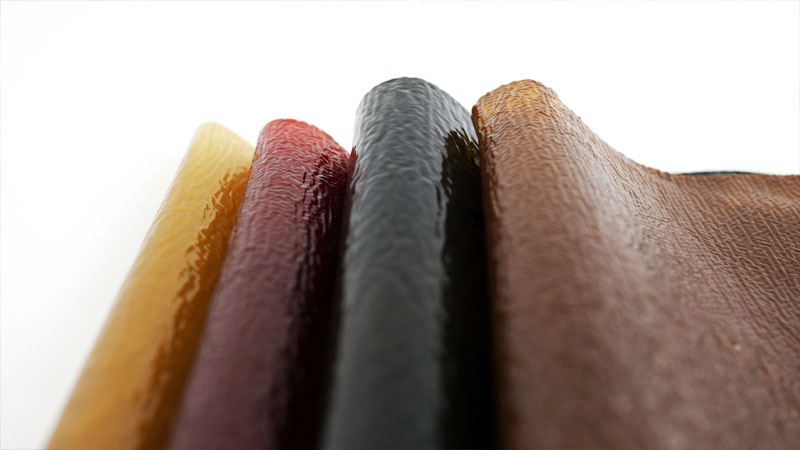Exclusive content

The fashion industry has long grappled with the ethical and environmental implications of leather production, often tied to the meat industry and fraught with concerns of animal cruelty and waste. In response, companies have been actively seeking alternatives, from vegan leather to unconventional sources like shrimp. However, many of these alternatives still rely on plastic components, posing challenges for biodegradability.
The Future of Sustainable Fashion
TômTex, a Brooklyn-based startup, has emerged as a pioneering force in sustainable material innovation. The company has developed a biomaterial crafted from discarded shrimp shells, mushroom waste, coffee grounds, and other organic sources. Unlike traditional leather substitutes, TômTex’s material contains no plastic, offering a fully biodegradable solution for environmentally conscious consumers.
TômTex recently announced securing USD 4.15 million in funding, a testament to the growing interest in sustainable fashion and circular economy initiatives. Major investors include Happiness Capital, SOSV, Parley for the Oceans, and MIH Capital. This influx of capital will fuel the company’s expansion efforts, facilitating increased production capacity and the hiring of additional workforce.
Scaling Towards a Greener Future
The newfound funding enables TômTex to scale its operations, paving the way for commercial production and widespread adoption of its innovative shrimp shell materials. With the ability to mimic a range of fabrics including leather, pleather, suede, latex, and vinyl, TômTex’s offerings hold immense potential across various industries, from fashion and furniture to automotive.
At the core of TômTex’s mission is the belief that “waste is the new luxury.” By leveraging abundant yet overlooked resources like shrimp shells, the company embodies a commitment to sustainability and circularity. As Tien Nguyen, a general partner at Earth Venture Capital, notes, TômTex’s approach aligns perfectly with the imperative for sustainable practices in industries like Vietnam’s shrimp production.
A Vision for the Future
By prioritizing organic materials and circular design principles, the company aims to lead the charge towards a fashion industry that is both innovative and environmentally responsible. As stated on their website, TômTex sees this ethos as “the only way forward” in creating textiles that contribute to a circular economy.